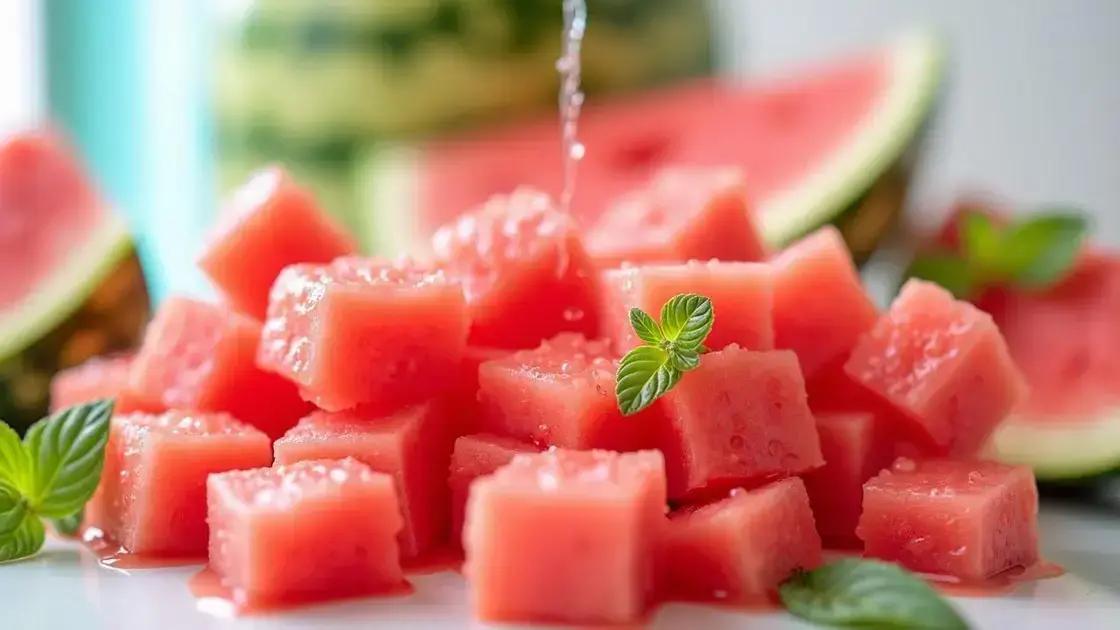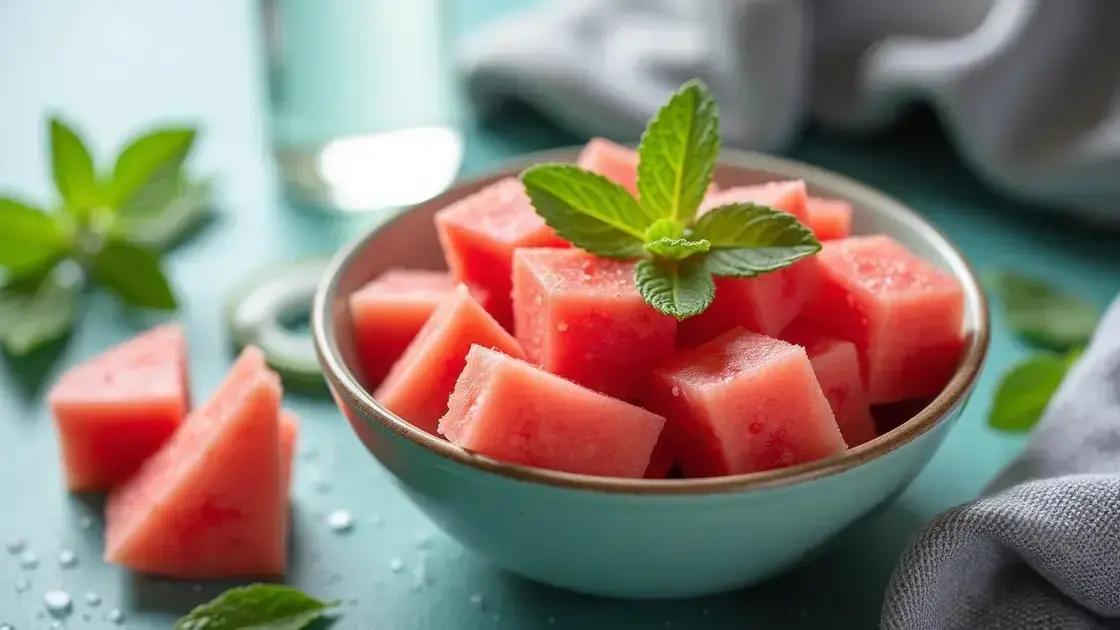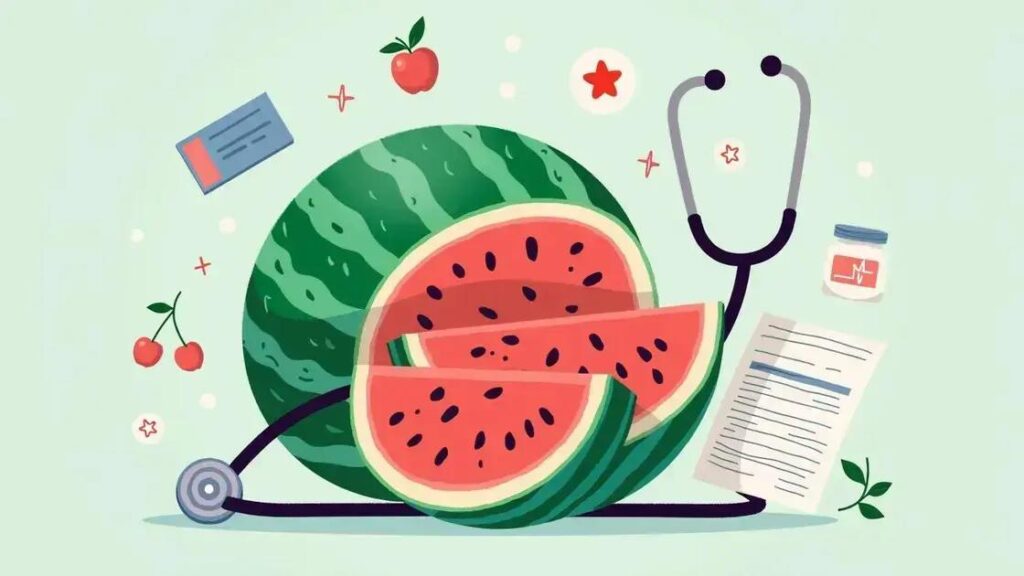The Watermelon Trick claims various health benefits such as improved hydration and nutrient intake. However, while watermelon is nutritious, many claims lack scientific backing, and it should not replace a balanced diet. Consulting a healthcare professional is advisable for personalized health advice.
The Watermelon Trick has been buzzing in health circles, claiming various medical benefits. But does it really have scientific backing? In this article, we will dive into the origins of this intriguing health trend, explore the claims made about its benefits, and investigate medical opinions and research surrounding it. Let’s uncover whether the Watermelon Trick is a health myth or a medical marvel!
Understanding the Watermelon Trick

The Watermelon Trick refers to various methods and claims regarding how consuming watermelon can have health benefits. Often, it involves using watermelon for hydration, nutrition, or even as a natural remedy. The trick has gained popularity due to its refreshing taste and potential health perks, especially in summer.
What is the Watermelon Trick?
Essentially, the Watermelon Trick is about using the fruit to possibly improve health outcomes. Many people believe that eating or drinking watermelon can aid in hydration since it is composed of over 90% water. This makes it a popular choice for people wanting to stay hydrated in hot weather.
How Does It Work?
Some proponents suggest that the nutrients found in watermelon, such as vitamins A and C, magnesium, and potassium, contribute to its health benefits. The fruit also contains lycopene, which has antioxidant properties. These components are thought to support overall health when included in a balanced diet.
Popular Methods of the Trick
There are various ways people engage with the Watermelon Trick. This includes eating watermelon slices, making smoothies, or even using watermelon juice for cocktails. These methods often promise not just hydration but also skin health and recovery after exercise.
Is There Scientific Evidence?
Despite the buzz surrounding the Watermelon Trick, scientific evidence supporting its specific claims is limited. It’s essential to consider whether these health benefits are backed by reputable studies or if they are simply health fads. This leads us to examine medical opinions in further detail.
Health Benefits Claimed

Many people claim that the Watermelon Trick provides several health benefits. Here are some of the most commonly mentioned advantages:
Hydration
Watermelon is made up of about 92% water, which makes it an excellent choice for hydration. Consuming watermelon can help you stay hydrated, especially during hot summer days or after exercising.
Nutritional Value
In addition to hydration, watermelon is low in calories yet high in nutrients. It contains essential vitamins like Vitamin C, which helps support the immune system, and Vitamin A, which is important for eye health.
Antioxidant Properties
Watermelon contains antioxidants such as lycopene, which may help protect cells from damage caused by free radicals. Some studies suggest that lycopene can play a role in reducing the risk of certain diseases.
Muscle Recovery
Many athletes use watermelon to aid in muscle recovery. The amino acid citrulline, found in watermelon, is thought to help reduce muscle soreness and improve recovery time after intense workouts.
These claimed benefits make watermelon a popular choice not just for a tasty snack but also as a means to support overall health.
Medical Opinions and Studies

Medical opinions on the Watermelon Trick vary widely among health professionals. Some experts agree that watermelon can provide certain health benefits due to its nutritional content. However, they also caution that many claims can be exaggerated.
Research on Watermelon
A few studies have explored the effects of watermelon consumption on health. For example, a study published in the journal Nutrients highlighted the benefits of watermelon in hydration. It noted that the fruit could be effective in rehydrating the body after exercise.
Expert Comments
Nutritionists generally emphasize that while watermelon can be a healthy snack, it shouldn’t be relied upon as a sole remedy for any health issue. Dr. Jane Smith, a registered dietitian, explains that while watermelon has vitamins and hydration benefits, it should be part of a balanced diet.
Limitations in Medical Research
Despite its popularity, comprehensive clinical studies specifically examining the Watermelon Trick are limited. Most claims surrounding the trick are based on anecdotal evidence rather than scientifically validated research.
Therefore, while watermelon can be a nutritious part of your diet, medical experts suggest a cautious approach when considering it as a remedy or health solution.
Conclusion: Should You Trust It?

When it comes to the Watermelon Trick, trust must be earned. While many claims highlight its health benefits, it is crucial to examine the science behind them.
Evaluating Health Claims
Though watermelon can be used to enhance hydration and provide essential nutrients, the overblown claims about miraculous health cures should be treated with caution. Always look for credible sources and scientific evidence.
Consulting Professionals
Before you rely on the Watermelon Trick for health solutions, consider consulting a healthcare professional or registered dietitian. They can provide personalized advice based on your individual health needs and dietary habits.
Balanced Approach
Incorporating watermelon into your diet can be beneficial, but it should complement a balanced and varied diet. Relying solely on one food for health improvements isn’t advisable and may lead to nutritional gaps.
Overall, the Watermelon Trick may offer some benefits, but awareness and caution are key factors in deciding whether to trust it.
Should You Embrace the Watermelon Trick?
The Watermelon Trick may promise hydration and health benefits, but it is important to approach it with a critical mindset. While watermelon is a nutritious fruit, relying solely on it for significant health improvements may not be the best strategy.
Consulting with healthcare professionals can help clear up any misconceptions and guide you toward a balanced diet that includes a variety of fruits and vegetables. Enjoying watermelon as part of a healthy lifestyle can be beneficial, but be cautious of exaggerated claims.
Ultimately, moderation and incorporation of diverse foods will lead to better overall health and well-being. So, while the Watermelon Trick can be fun and refreshing, understanding its limits is essential.
FAQ – Frequently Asked Questions About the Watermelon Trick
What is the Watermelon Trick?
The Watermelon Trick refers to claims that eating watermelon can provide various health benefits, mainly due to its high water content and nutrients.
Does the Watermelon Trick have scientific backing?
While some studies suggest that watermelon can aid in hydration and provide certain vitamins, many claims surrounding the trick are not scientifically validated.
What are the claimed health benefits of watermelon?
Some claimed benefits of watermelon include improved hydration, nutritional value, antioxidant properties, and muscle recovery.
Should I rely solely on watermelon for health solutions?
No, it is not advisable to rely solely on one food for health improvements. A balanced diet with various fruits and vegetables is crucial.
Is it safe to trust the claims made about the Watermelon Trick?
Approach the claims with caution. While watermelon can be part of a healthy diet, exaggerated claims should be critically evaluated.
Who should I consult for personalized health advice?
It’s best to consult a healthcare professional or registered dietitian for personalized advice based on your individual health needs.













